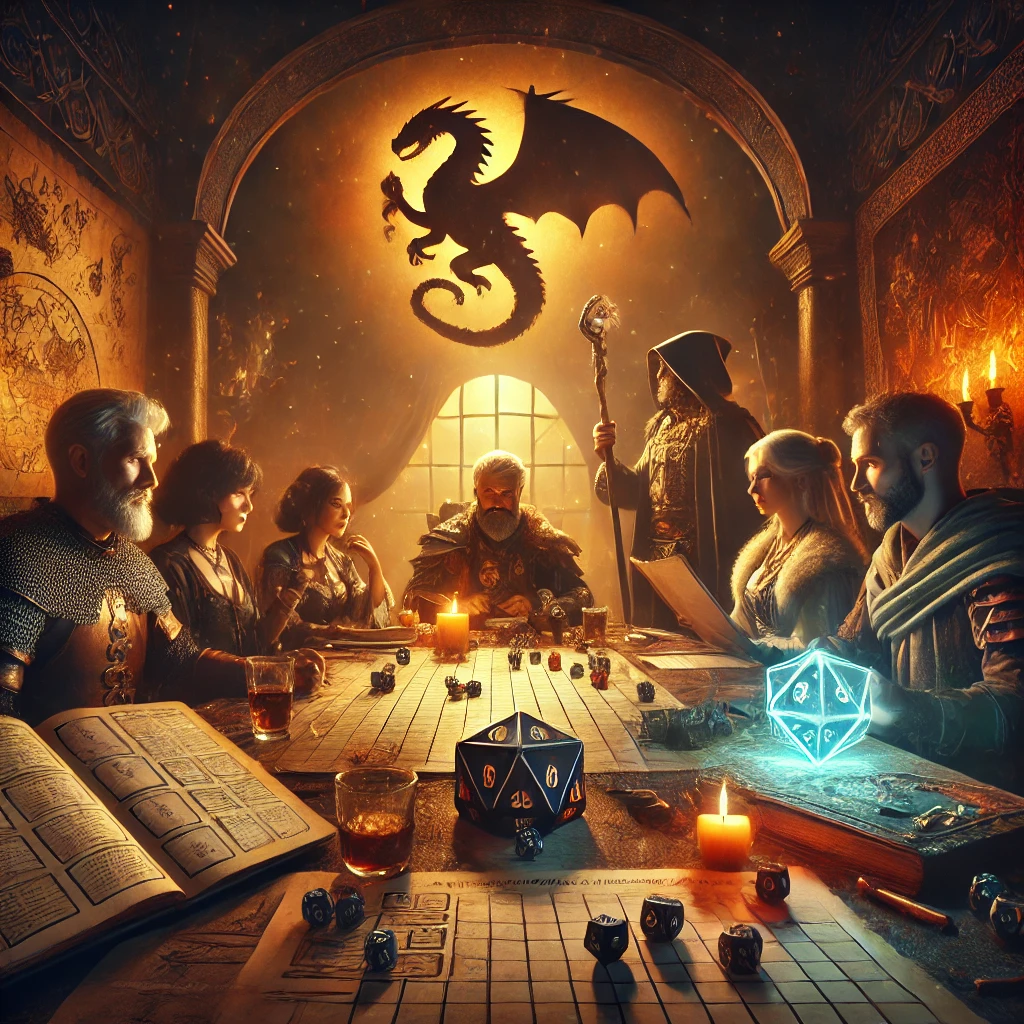Introduction
Dungeons & Dragons (D&D) is not just a tabletop role-playing game; it is a cultural phenomenon that has profoundly influenced literature, film, video games, and pop culture at large. Created by Gary Gygax and Dave Arneson in 1974, D&D has grown from a niche hobby into a worldwide sensation, captivating millions with its blend of storytelling, strategy, and imagination.
The Origins of D&D
D&D originated as a fusion of traditional wargaming and fantasy fiction, drawing inspiration from works like J.R.R. Tolkien’s “The Lord of the Rings” and Robert E. Howard’s “Conan the Barbarian.” The game introduced players to the concept of role-playing as characters in a shared world, navigating quests, battles, and intricate plots designed by a Dungeon Master (DM). The game’s success can be attributed to its open-ended nature, allowing for infinite possibilities in character creation, story development, and world-building.
The Mechanics of Magic and Combat
At the heart of D&D are its complex mechanics, which involve dice rolls, character statistics, and rules that govern everything from combat to spellcasting. The game uses various polyhedral dice (d4, d6, d8, d10, d12, and d20) to determine the outcomes of actions, adding an element of chance and strategy. Players create characters with unique abilities, skills, and backgrounds, contributing to the richness of the game’s narrative. The use of magic in D&D is particularly notable, with an extensive list of spells, each with its own rules, effects, and requirements, further immersing players in a fantastical world where anything is possible.
Cultural Impact
D&D’s influence extends far beyond the gaming table. It has inspired countless books, television shows, and movies, and has become a foundational element in the development of modern video games, especially in the role-playing genre. The game’s emphasis on cooperative storytelling and problem-solving has also made it a valuable tool in education and therapy, helping individuals develop creativity, teamwork, and critical thinking skills. Additionally, D&D has played a significant role in the rise of geek culture, with its once niche audience growing into a vibrant, diverse community celebrated at conventions, in online forums, and through streaming platforms like Twitch.
The Evolution of D&D
Over the decades, D&D has undergone numerous revisions and updates, with the current Fifth Edition (5e) being the most popular to date. Each edition has refined the game’s mechanics and expanded its lore, making it more accessible to new players while still offering depth for veterans. The rise of online play, digital tools, and virtual tabletops has further broadened the game’s reach, allowing people from all over the world to connect and embark on epic adventures together.
Conclusion
Dungeons & Dragons is more than just a game; it’s a gateway to limitless creativity and adventure. Whether you’re a seasoned player or new to the world of tabletop role-playing, D&D offers an experience that is both challenging and rewarding, fostering a sense of camaraderie, imagination, and wonder that few other forms of entertainment can match. As the game continues to evolve and inspire, it remains a testament to the enduring power of storytelling and the human imagination.
